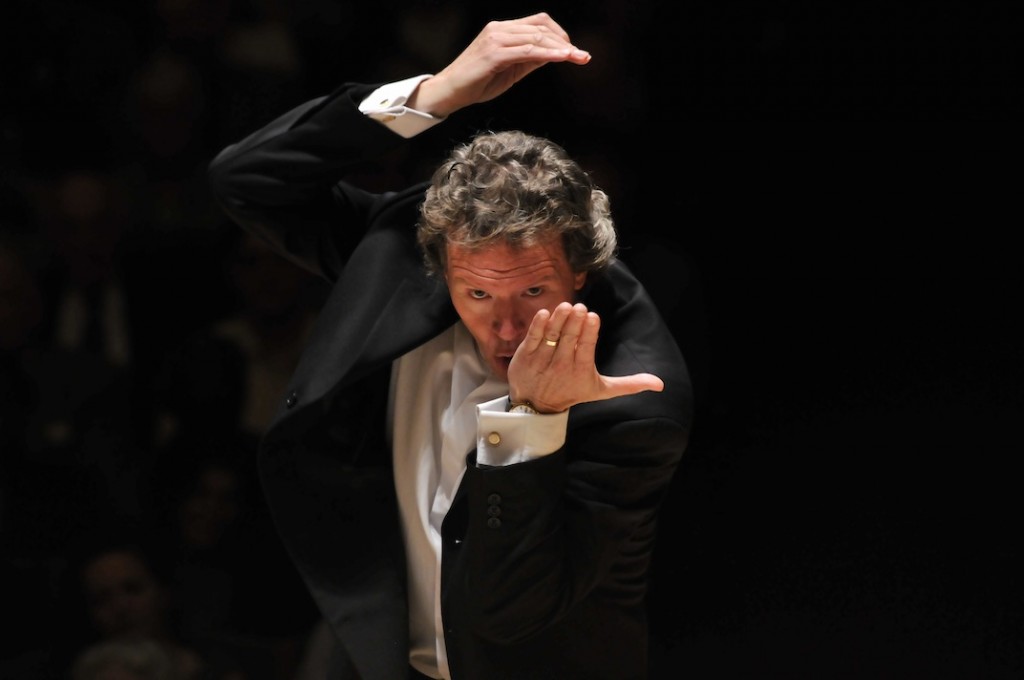Handel and Haydn Society serves up an exceptional “Messiah”

Harry Christophers led soloists and the Handel and Haydn Society in Handel's "Messiah" Friday night at Symphony Hall. Photo: Stu Rosner.
It’s December with Christmas on the horizon — and in North America in any city with even a trace of musical culture, that means Handel’s Messiah is being performed by at least one local group. There will be several sing-alongs and performances of the piece in Boston throughout December, and on Friday night in Symphony Hall, the Handel and Haydn Society led by Harry Christophers was the first to indulge in the tradition for 2011.
While soprano Sarah Coburn, countertenor Lawrence Zazzo, tenor Tom Randle, and baritone Tyler Duncan each delivered admirable performances, it was the Handel and Haydn Society Chorus and the ensemble’s commitment to historically informed performance that made this particular interpretation of the oft-performed Messiah exceptional.
From the oratorio’s “Grave” instrumental opening, the orchestra delivered a crisp, nuanced sound under the unfaltering baton of Christophers, with bassist Anne Trout providing a fluent and commendable continuo line. The orchestra’s skill as accompanists was impressive throughout, especially in the third chorus, For unto us a child is born.
Soprano Coburn was the most consistent of the soloists. Her performance of the final aria of the oratorio, If God be for us, was delicately expressive. Her impeccable sense of phrasing revealed her technical prowess and allowed her to convey affecting nuances of the text.
Tom Randle was the first of the soloists to take the stage, and he added even more vocal charisma by being entirely off-book for the performance. Handel and Haydn Society added extra authenticity by bringing in a countertenor soloist rather than an alto, and Zazzo was also impressive indeed. His high notes were bold and strong without compromising the excellence of his intonation.
Duncan performed admirably especially given the technically challenging aspects of the oratorio, including the ornamentations and thirds in the low register in the aria The people that walked in darkness.
The Handel and Haydn Society showed logistical creativity by having the trumpets play in the balcony for Glory to God in the highest, though the idea was better in theory than execution. Though better placed stage left for Part Three, the principal trumpet struggled through his solos, most notably in less-than-stellar solos in The Trumpet shall sound.
Even with an accomplished line-up of soloists, the skill and musicianship of the Handel and Haydn Society Chorus was the most memorable aspect of the evening. The sections were perfectly balanced, and extremely cohesive as a group. Christophers’ interpretation featured several instances of word painting, such as in the chorus His yoke is easy, which the sopranos and altos handled beautifully. The fugal chorus He trusted in God allowed the men of the chorus to show off their vocal force.
And the majority of the audience did stand up for the Hallelujah chorus.
The program will be repeated 3 p.m. Sunday. handelandhaydn.org; 617-266-3605.
Posted in Performances




